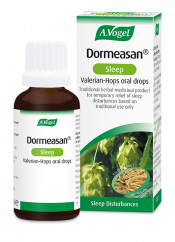The research
Research recently carried out in Japan showed that participants in the trial who ate the most rice, and who had a generally high GI diet, reported better sleep.
GI stands for Glycemic Index, and this measures the rate at which a food breaks down into sugars in the bloodstream, so high GI rice is rice that creates a particularly large spike in blood sugar.
Other research has shown that eating a meal of high GI rice 4 hours before bedtime helped the participants sleep.
Why would rice help you sleep?
Most researchers think that this is due to the large amount of insulin released after a high GI meal. Insulin drives the amino acid, Tryptophan, that helps induce sleep, into the brain. Tryptophan is one of the nine essential amino acids that we need. Essential, in this case, means that the body cannot synthesise it and therefore we have to get it from our food.
Amino acids are commonly referred to as the ‘building blocks’ of protein and this is true as they come mainly from protein sources. As all body builders know, protein is used in the body to grow muscle and repair tissue. But protein has many other functions and specific amino acids have some very specific jobs in the body as well.
One of Tryptophan’s jobs is to cross into the brain and synthesise serotonin. Serotonin, as many people know, is a brain chemical that is essential for good mood and for sleep. At night, it in turn is converted into melatonin, the hormone that helps us ‘switch off’.
The problem with Tryptophan is that due to a quirk in its composition, it fares badly when competing with other amino acids to get into the brain, and needs insulin to help it.Therefore, if you eat a protein food, like turkey, that is actually high in Tryptophan, the other amino acids present in the food crowd it out of the receptor sites in the brain and very little gets through. If, however, you eat carbohydrates, the insulin created as your blood sugar rises helps to get Tryptophan into the brain and this can help both mood and sleep.
Does this mean we should all start eating white rice at night?
Well, in my opinion, not exactly. Firstly, the theories of carb/protein metabolism and how they affect Tryptophan are controversial, with some researchers saying that even the tiny amounts of protein in carbohydrates will prevent Tryptophan uptake.
Secondly, human beings are very complicated and sleep itself is a complicated science. Everybody is different and it depends on when you last ate, what you last ate, your metabolism, the state of your nervous system, and if you have the right nutrients that help convert Tryptophan to serotonin and so on. B vitamins are very important for this conversion process, so if you are deficient in these you could have plenty of Tryotophan in the brain but not be able to convert it into serotonin.
And last but not least, eating a lot of high GI carbs that create blood sugar swings, and in forms with few nutrients, is not good for anyone! It is possible that high GI meals make you sleepy, not because of Tryptophan intake, but because you get an initial sugar high followed by a crash in blood sugar that makes you tired. In fact, you only have to think about how you often feel after eating a huge bowl of pasta to know how sleepy you can feel after eating such food.
Because of the effects of insulin, high GI diets are implicated in many health problems. The authors of the rice study themselves warned about this, writing that although the effects on sleep are beneficial, such diets are also reported to be associated with several health problems including obesity, diabetes mellitus, cardiovascular disease, and some cancers.
Furthermore, obesity induced by the long-term consumption of a high GI diet may cause sleep apnoea syndrome, which may also affect sleep quality. Accordingly, the association between the long-term consumption of meals with a high-GI and sleep quality should be analysed in greater detail (see http://www.plosone.org/article/info:doi/10.1371/journal.pone.0105198 for the research document in full).
Is there a better alternative?
I do think though that there is a lot of sense, especially for those with sleep problems, in thinking about what to eat at night. Protein and fat are generally harder for the body to break down than carbs, so some experts do advocate sticking to protein (meat, fish, dairy, eggs) during the day and then keeping your evening meal low in fat and higher in carbohydrates.
Eating this way means that you get the potential sleep inducing effects of carbs and that you are not going to bed with an overloaded digestion system. Sticking to carbohydrates from vegetables and whole grains is much better for your body. Vegetables such as parsnips and potatoes can actually be high GI yet still contain valuable nutrients unlike refined grains.
Other people recommend a high carb/no protein snack about an hour before bed. Again, I would stick to versions of this that are as healthy as possible like a few oatcakes, or a milky drink. In fact, of all carbohydrates, oats have a lot of Tryptophan so are a very good choice.
And, although many people might prefer the idea of tucking into a bowl of rice to a bowl of lettuce, there is other research that shows that eating certain fruits and vegetables can have a dramatic effect on sleep. I will look at these in my next post – and yes, lettuce is one of them!








